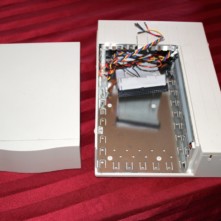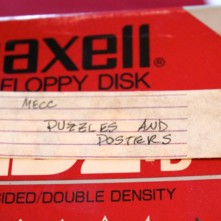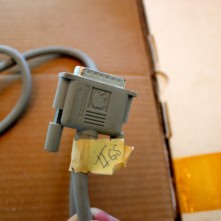Solo climbers
| November 30th, 2015 9:58 AM by Ken Gagne | Filed under Musings, Software showcase; Comments Off on Solo climbers |
Most Apple historians know the name Jean-Louis Gassée: former Director of European Operations at Apple Computer, founder of Be Inc., and the mysterious informant who told John Sculley not to get on a plane to China, lest he be ousted by Steve Jobs.
But Gassée’s contributions to technology don’t end in the 1980s or even 1990s: he writes a fascinating blog at The Monday Note, drawing upon his experiences and perspectives in the industry. This past summer, he penned a post of particular relevance to Apple II users. "A Salute To Solo Programmers" pays homage to the days when a single developer could create an entire program:
Once upon a time, we were awestruck by the "solo climber", the programmer who could single-handedly write a magnum opus on a barebones machine such as the Apple ][ with its 64 kilobytes of memory (yes, kilo — not mega, let alone gigabytes), and 8-bit processor running at 1MHz (again, mega not giga).
Gassée goes on to offer examples of , Bill Budge, Dan Bricklin, and Paul Lutus, who worked independently to create programs that changed the world. It’s a phenomenon that’s unlikely today:
Operating systems have become so sophisticated, so tentacular that a single human being can’t possibly internalize their workings and write application code that keeps us users walking on water. There’s no place for a 2015 Paul Lutus.
I encountered a similar sentiment at KansasFest 2013 when I interviewed Eric Shepherd, former senior technical writer for Be Inc.:
I don’t know how much of this is just wistful reminiscing for simpler times. As Gassée later acknowledges, modern computers are not only capable of greater feats of engineering, but they still offer wonderful opportunities for solo development. Access to programming tools and resources is unprecedented, with classes being offered for free at local libraries, universities, and makerspaces, including to underserved communities and demographics. Motivated parties can build anything as simple as a Twitter bot to as complex as as a best-selling video game with a team of one.
I don’t believe development has outgrown the boundaries of the Apple II — it’s expanded them. But the time when "solo climbers" were the rule rather than the exception was unique, and we have much to thank those pioneers who led the way.
(Hat tip to Thomas Compter)





















